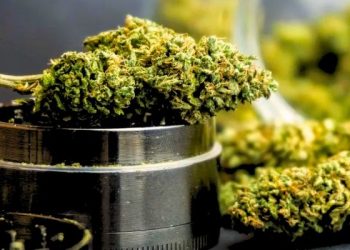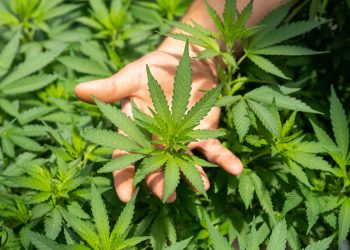CBD is used widely in the United Kingdom. Products containing the cannabinoid can be purchased online and in brick-and-mortar businesses.
CBD is infused into foods, oil, and cosmetics. UK residents have no problems getting their CBD. That doesn’t mean that there is still a long way to go in how CBD is regulated.
The UK has made some strides in the right direction regarding cannabis legalization. Compared to a decade ago, today’s cannabis market is unrecognizable.
Cannabidiol is still far from being clearly and reasonably regulated. Major cannabis reform legislation is on the horizon for the UK and many other countries in the developed world.
CBD Legality in the UK
Contents
CBD is legal in the UK, but it isn’t exactly that simple.
Both hemp and marijuana are considered cannabis plants. Their chemical makeup is where they differ. Until recently, marijuana plants were grown for their THC content and hemp for their industrial purposes. Before the CBD boom, hemp was used widely for an array of different industrial products.
Hemp is used to producing oil by cold pressing the seeds. It can be used to make plastics, concrete, paper, rope, and much more. It is an extremely versatile plant. Now that CBD has become nearly as popular as THC, the hemp industry has forever changed.
Today, hemp’s most valuable property is the flower. This is where CBD comes from. These flowers are what is causing so much confusion and controversy in the cannabis industry.
Any cannabis containing THC is considered a controlled substance. Pure CBD is exempt from this classification. Cannabidiol products containing small amounts of THC are tolerated by the government but aren’t exactly legal. This is where things get murky.
CBD users want CBD oil with small amounts of THC. Experts believe a full-plant experience is more beneficial. Many studies are suggesting that the combination of CBD and THC creates more potential medicinal properties for its users.
Common Misconceptions on CBD’s Legality
You may have heard that CBD with 0.2% THC or lower is legal. This is an oversimplification of the law. The legislation around CBD and THC is much more complicated.
Home Office guidance states that “licenses may be issued for the cultivation of cannabis plants with a low tetrahydrocannabinol (THC) content.” This only applies to industrial hemp plants, not CBD consumable products.
There is a revision that gives full-spectrum CBD retailers an exemption in the Misuse of Drugs Regulations. If all three below criteria are met, their products are exempt from the Class B Controlled substance classification.
- It is not designed for the administration of THC
- Any THC elements of the product are packaged in such a way that it cannot be recovered by readily applicable means, or at a level which would constitute a risk to health
- It contains no more than one milligram per component part of the product
While these criteria allow full-spectrum CBD products to be sold, they don’t make marketing them very easy. Retailers can’t sell the fact that their oil may be a superior product because of its THC content.
The average person is likely to not know these regulations. Confusion around CBD laws is rampant. Popular weekly news magazine, The Week, whose slogan is ‘everything you need to know about everything that matters,’ states that ‘for CBD to be legal in the UK, it must contain no THC.
Cannabis oil, which has THC content, is not usually allowed in the UK.’
Hopefully, the future of CBD has clear rules and regulations. The people in the UK are currently not confident on what cannabis products are legal and what isn’t. Legislation concerning consumable CBD products is only part of the problem.
There also needs to be major reform regarding the cultivation of cannabis in the UK. This could be the first major change the UK sees regarding the CBD industry.
Regulations in Cultivation
In the United States, cannabis imports and exports are mostly illegal. Marijuana can’t even cross state lines. All cannabis is encouraged to be grown in the USA. While the UK has been harvesting hemp for centuries, the hemp used for CBD is all imported.
UK farmers growing hemp are only allowed to use the parts of the plant that can be used for industrial purposes. The flowers are required by law to be destroyed.
The CBD oil that people from the UK are consuming is extracted from foreign hemp plants.
This hurts the UK CBD consumer. Prices would be much lower if the hemp plants were grown closer to their point of consumption.
Laws regarding hemp cultivation are very unpopular in the UK. A 2019 YouGov survey found that 75% of the public believes that hemp farmers should be able to use their plants to produce CBD products.
Both farmers and CBD product retailers are constantly at risk of paying enormous fines or even going to prison. Farms that are caught growing hemp for CBD products risk having entire crops destroyed.
Retailers that sell CBD oil with more than 0.2% THC could find themselves with drug manufacturing changes.
Luckily for hemp farmers and CBD companies, the classification of cannabis is likely to change. The EU has already determined that cannabis shouldn’t be grouped with heroin and cocaine. Eventually, most counties in the west will decriminalize cannabis.
This is good news for CBD companies because they won’t risk serious time in prison for minor infractions like having a product contain 1.5 mg of THC.
The Future
According to Vitafoods Insights the UK Home Office “has stated it has no plans to ease restrictions on using hemp flowers for extraction of cannabinoids before the EU exit period ends on 1 January 2021.”
Hopefully, this means they have been waiting for Brexit to be finalized before easing the restrictions of hemp farms. It is doubtful that the UK will miss the opportunity to become one of the leading CBD suppliers in Europe.
The regulations on CBD products are a bit harsh as well. Maybe new cannabis reforms will loosen the regulations concerning THC in CBD products.
The market is moving toward full-spectrum extracts because science suggests that CBD in this form could be more beneficial.
The future of the CBD industry in the UK is still unclear. Hopefully, new laws will allow CBD businesses more leniency.
We are optimistic that the future will bring more clarity to the industry, UK sourced hemp-derived CBD products, lower prices, and easing on the regulations regarding THC. Only time will tell.
SOURCES
https://www.vitafoodsinsights.com/cbd/uk-sticks-strict-stance-hemp-flowers
https://www.twobirds.com/en/news/articles/2020/global/cbd-uk-regulations-explained-myths-vs-reality
https://www.lexology.com/library/detail.aspx?g=3cbe1dd7-2a21-43ca-ae4a-fe5749d989c2
https://irp-cdn.multiscreensite.com/51b75a3b/files/uploaded/Exec%20Summary%20-%20CBD%20.pdf
https://canex.co.uk/current-uk-hemp-legislation-and-what-it-means-for-the-industry/










